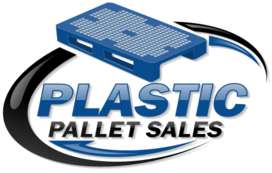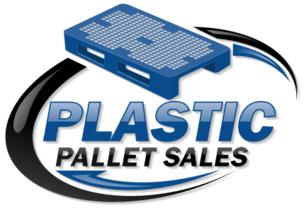Why Plastic Pallets are the Best Option for Cross-Docking
In the supply chain industry, cross-docking is a popular practice used by manufacturers, distributors, and retailers to optimize the efficiency and speed of their operations. Cross-docking essentially involves unloading products from incoming trucks and immediately loading them onto outbound trucks without the need for long-term storage. This process minimizes handling, reduces inventory costs, and increases the speed of product delivery. However, to make the most out of the cross-docking process, it is important to use the right packaging materials. One such packaging material gaining popularity in cross-docking operations is plastic pallets. This article will explore why plastic pallets are the best option for cross-docking operations, the benefits of plastic pallets, and answers to frequently asked questions.
Why Plastic Pallets are the Best Option for Cross-Docking
There are several reasons why plastic pallets are the best option for cross-docking operations:
Durable: Plastic pallets are designed to withstand the wear and tear of the transportation and shipping process. Unlike other pallet types like wood and cardboard, plastic pallets don’t easily warp, splinter, or crack. This durability makes plastic pallets less prone to product damage and worker injury, making them an ideal fit for cross-docking operations where efficiency and safety are paramount.
Easy to Clean: Plastic pallets are easy to clean and sanitize, making them a suitable choice for the food and pharmaceutical industries. These industries need to adhere to strict hygiene standards and using plastic pallets ensures that the storage and transport of goods are done in a clean environment.
Reusable: Plastic pallets are reusable, and this makes them a cost-effective option for companies operating in cross-docking. While higher upfront costs compared to other pallet options may discourage some companies, the long-term durability and reusable nature of plastic pallets mean that they will save more money in the long run.
Dimensionally Stable: Unlike other pallet types like wood and cardboard, plastic pallets are dimensionally stable. The dimensions of plastic pallets do not change due to humidity or temperature changes, making them a reliable choice for the cross-docking operation, especially when goods have varying sizes and weights.
Nestable: Plastic pallets are designed to nest, meaning that they take up less space when not in use. This feature makes plastic pallets an excellent choice for cross-docking operations that face space constraints. Once products have been offloaded, the plastic pallets can be nested and stacked to save space.
The Benefits of Using Plastic Pallets in Cross-Docking
There are several advantages that companies can realize by using plastic pallets for their cross-docking operations. These benefits include:
Increased Efficiency: Plastic pallets make cross-docking operations more efficient because they can be quickly and easily moved by forklifts and other material handling equipment. Plastic pallets are lighter than wooden pallets, making it easier to move more goods in less time.
Reduced Injury and Product Damage: As previously mentioned, plastic pallets are more durable than wooden pallets, which in turn reduces the likelihood of product damage, worker injuries, and worker downtime.
Environmental Sustainability: The reusable nature of plastic pallets makes them more environmentally friendly than wooden pallets, which are often single-use and end up in landfills. By choosing plastic pallets, companies can contribute to a more sustainable supply chain and position themselves as environmentally responsible.
Increased Worker Safety: Since plastic pallets don’t have protruding nails and splinters like wooden pallets, they’re safer for workers to handle. This safety feature contributes to a safer work environment and reduces the risk of injuries and compensations claims.
Decreased Cross-Contamination: Frequent cleaning and sanitization of plastic pallets reduce the chance of contamination in the supply chain. In cross-docking operations, this is vital in ensuring that products reach their destination in their purest form, free from any cross-contamination.
Frequently Asked Questions
Q: Are plastic pallets more expensive than wooden pallets?
A: Yes, plastic pallets are generally more expensive than wooden pallets, but they have the advantage of durability, reusable, and increased efficiency, resulting in a more cost-effective approach to the entire supply chain.
Q: What is the lifespan of a plastic pallet?
A: When correctly used and maintained, plastic pallets can last up to ten years.
Q: Can plastic pallets be sanitized?
A: Yes, plastic pallets can be easily sanitized, making them safe and suitable for the transportation of goods in the food and pharmaceutical industries.
Q: Can plastic pallets be recycled?
A: Yes, plastic pallets can be recycled, making them environmentally sustainable.
Q: Can plastic pallets be repaired?
A: Yes, broken plastic pallets can be repaired by welding pieces together or using new plastic components.
Conclusion
In summary, using plastic pallets for cross-docking operations has several advantages, including durability, easy cleaning and sanitization, reusability, and increased efficiency. While there is an upfront cost to using plastic pallets, the long-term savings in terms of reduced product damage, worker injury, and increased efficiency make plastic pallets a more cost-effective option in the long run.
#Plastic #Pallets #Option #CrossDocking


Leave a Reply
You must be logged in to post a comment.